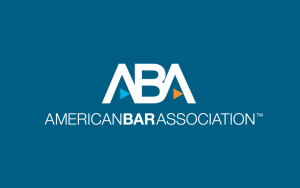The American Bar Association’s accreditor of law schools is proposing to eliminate the requirement that ABA-approved law schools secure scores for a “valid and reliable” test for incoming classes as long as other measures indicate the school has “sound admission policies and practices.”
At its meeting in Boston on Nov. 3rd, the Council for the ABA Section of Legal Education and Admissions to the Bar took the significant first step toward accepting one of the options proposed by its Standards Review Committee by putting the proposal out for “notice and comment.”
The proposed change emerged after a spirited discussion during the council’s near 5½-hour open session. At the meeting, council members considered a number of proposals and recommendationsfrom its Standards Review Committee. At its two-day meeting, the council also considered school accreditation matters behind closed doors consistent with its rules that require confidentiality.
Under a preliminary timeline, the earliest the proposal (known as Option 1 under Standard 503 in this memorandum) could affect first-year law students would be for classes starting fall 2019. Under the proposal, an admissions test remains one of the factors that a school can consider, along with grade-point average and other indicators of future performance. Schools would still have to report publicly results for each test they accept.
Any test change would signify a radical departure in law school admissions as the LSAT, administered by the separate Law School Admissions Council, has become a staple of law school admissions procedures since it was first administered nearly 70 years ago in 1948. In the past two years, however, several schools have announced they would begin accepting the GRE as an alternative admissions test. Current Standard 503, which covers admissions procedures, only requires a “valid and reliable test” be used in the admissions process. That standard remains in effect until any change takes place.
Pamela Lysaght, chair of the council’s Standards Review Committee which offered the change, said the current standard is “rather toothless” because it does not include any minimum test score or other required threshold. She said if the change is enacted, law schools would still be reviewed for “outcome issues” under Standard 501, which would be changed to say, “a law school shall admit only applicants” who appear capable of completing a legal education and being admitted to the bar.
Lysaght and Barry Currier, the managing director of the section, both stressed that under the proposed change the council could direct any school to require an admissions test as “remedial action” if, for instance, a low bar passage rate, attrition or other facts suggested a school was accepting less capable students.
The council is recognized as the national accreditor of law schools by the U.S. Department of Education. Under its rules, changes in standards, such as to Standard 503, would be reviewed by the ABA House of Delegates, which next meets in February 2018. The House could concur or ask that a change be considered. But the council retains the power to move ahead with any decision after two considerations by the House.
Two other major changes were also considered by the council, and it decided not to proceed on either for now.
The council again considered its previously adopted change to bar passage Standard 316. In February, the House of Delegates rejected the council’s request to make Standard 316 more straightforward and simple. Now, the standard considers first-time bar takers, statewide score averages and five-year “ultimate” bar passage rates. Council Chair Maureen O’Rourke, dean of Boston University School of Law, termed the current formula as “byzantine.”
The council has embraced a two-year ultimate bar passage rate of 75 percent of those who take the bar exam, which is typically administered by states twice a year. While the council first voted 9-8 to take that proposal to the House in February, it reconsidered in light of the closeness of the vote. Instead, the council will explore how best to get more support from legal education stakeholders who oppose the change. Some critics fear the change would have a disparate impact on law schools with significant numbers of minority students, whom studies have shown traditionally don’t do as well on standardized tests, which is also a concern of the council. But a survey in which nearly half of the 204 ABA-accredited schools voluntarily replied suggested the change might not be a major problem to meet.
The council also rejected a Standards Review Committee proposal to revise Standard 403 (see Appendix B) to allow for more adjunct faculty members in the second and third years of law school. Advocates said this would provide more faculty flexibility and allow innovation, and lighten the regulatory burden. But other council members expressed concern that too many adjunct faculty members would dilute the law school experience.
In other action the council:
- Approved changes to the Employment Outcome Report Form to get the full form on one page while clarifying a part that was said to be confusing related to school-funded jobs that pay more than $40,000.
- Put out for notice and comment several other changes to standards, including a change to Standard 306 that would modestly increase the percentage of course work a student could take through online courses without a variance.
- Modified a requestby the ABA Young Lawyers Division to add two “young lawyers” to the council. Rather, the consensus of the council was to more aggressively recruit young lawyers – defined as under 36 years old or licensed for no more than five years – to join the council as well as its committees and panels involved in site visits for accreditation. Raymond Pierce, former dean of North Carolina Central University School of Law in Durham, summed up the feeling of the council when he said, “We got to be younger … good help is hard to find, particularly if you are not getting paid.”
- Moved ahead with a proposal for restructuringoperations, including folding the work of the two major committees (Standards Review and Accreditation) into the council. The move would save money and expedite the review of changes to standards as well as remedial actions directed at schools. The change would also extend to 10 years from seven the scheduled law school accreditation reviews. The proposed changes will also be put out for notice and comment.
For more information on the council meeting, including reports and recommendations, click here.
(Source: ABA)




















